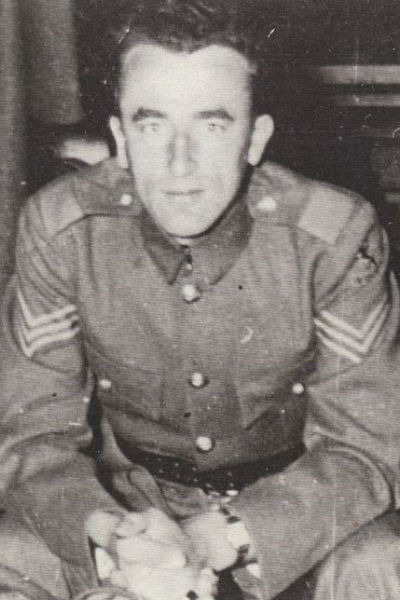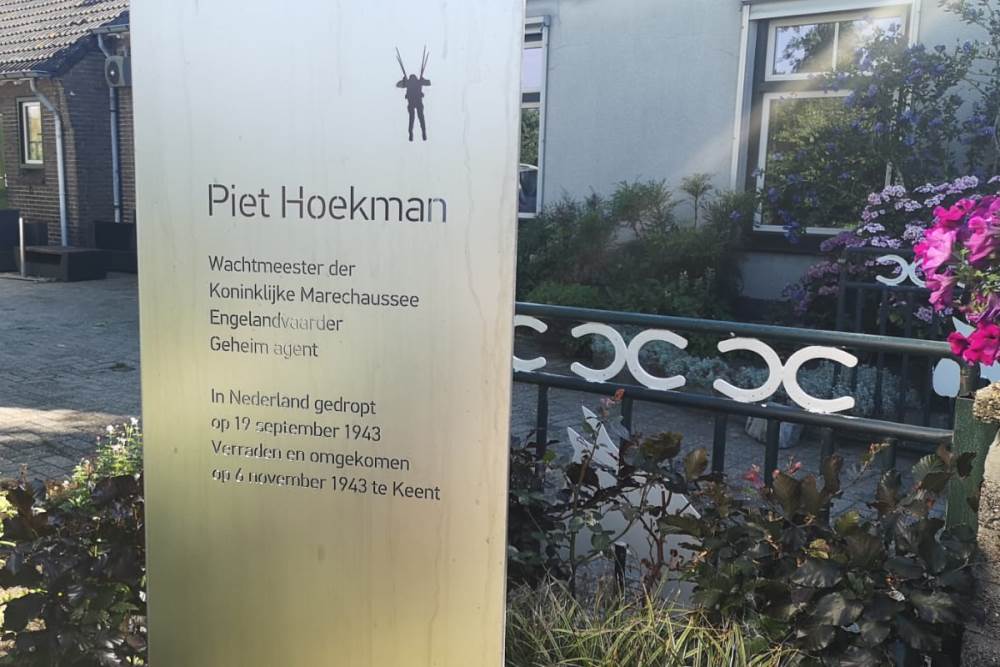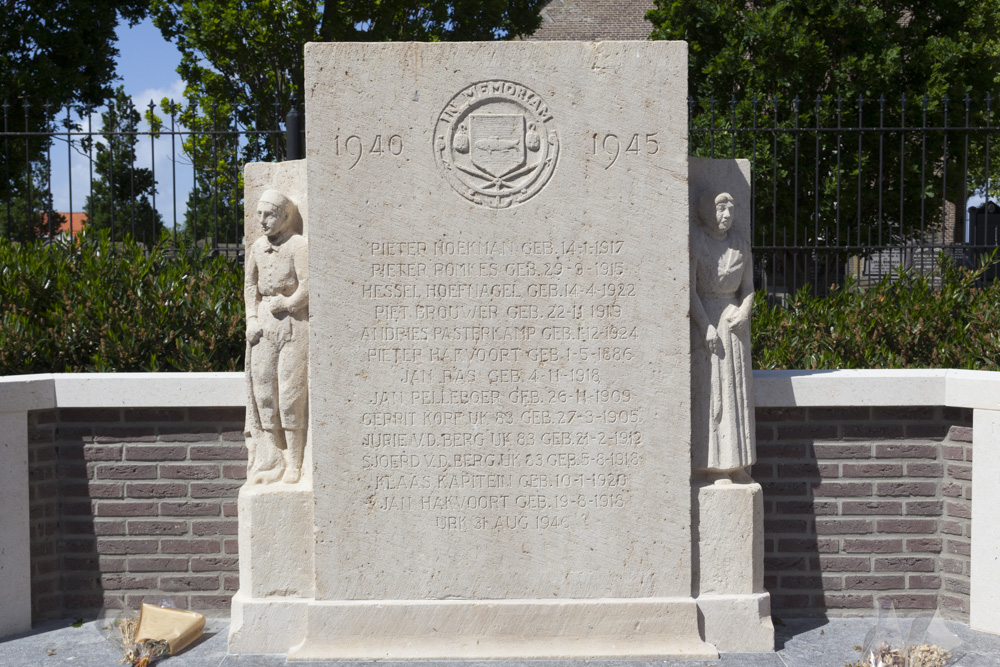Hoekman, Pieter
- Date of birth:
- January 14th, 1917 (Urk, the Netherlands)
- Date of death:
- November 6th, 1943 (Keent-Overasselt, the Netherlands)
- Nationality:
- Dutch
Biography
Pieter Hoekman was born January 14th, 1917 on the island of Urk, the son of Albert Hoekman and Grietje Hakvoort. He was raised in a family with 7 brothers and 2 sisters. Although he was exempted from military service, he reported voluntarily. After his military service, he reported to the Koninklijke Marechausse (=Military Police) on August 9th, 1938. After training in Apeldoorn, he was posted in Deventer and in Enschede and served as border guard in Dinxperlo and in Winterswijk. Ultimately he was promoted to Wachtmeester.
When war broke out on May 10th, 1940, Pieter Hoekman was posted in The Hague and got involved in the fighting against German paratroopers who had been dropped near The Hague. Soon after the capitulation he left for England by way of Vichy France. Initially he managed to reach Marseilles, finding employment as a dockyard worker before crossing the border into Spain. Once in Spain, he was arrested however and deported to France where he was interned in Toulouse. Ultimately he managed to escape and reached the port of Curaçao by boat. After having served with the Curaçao Police Force for a short period he moved to Canada and finally ended up in England, Here he reported the Bureau of Intelligence and was trained to become a secret agent.
In the night of September 19th to 20th, 1943 he, together with Bram Grisnigt, was dropped over Beugen, north of Boxmeer. They formed the Group Barbara to maintain contact between the Ordedienst (OD, Dutch underground) in the Netherlands and the Bureau of Intelligence in London.
They made contact with village policeman G.J. Beuvink who helped them to contact secret agent Garrelt Andreas van Borssum Buisman, organiser and leader of Group Barbara.
Hoekman and Grisnigt worked subsequently from Escharen and moved to Amsterdam a while later. Grisnigt continued working from Amsterdam as Pieter Hoekman moved his sphere of operations to The Hague, transmitting from the Balistraat and working for Chris Tonnet.
November 6th, 1943, Grisnigt and Hoekman decided to pay a visit to the Beuvink family in Escharen. On arrival they encountered the secret agents Marinus Verhage and Jan Hendrik Diesveldt who had just arrived from England. The radio equipment of both gentlemen had landed near a farm in Keent, municipality Overasselt. As Verhage felt ill, Hoekman offered to go and fetch the equipment together with Jan Diesveldt and Beuvink. When they arrived, Beuvink waited outside and Hoekman and Diesveldt entered the farmhouse. Nearby German troops however had heard of the dropping. They had put pressure on the farmer and he had told them everything about the equipment. As Hoekman and Diesveldt entered they were immediately taken prisoner by the Germans. At a certain moment, Hoekman attacked one of the German guards. In the ensuing scramble, the lamp in the room was hit by a stray bullet and under cover of darkness, Hoekman and Diesveldt tried to escape. However, Pieter Hoekamn was hit in the chest by a bullet and died instantaneously. Diesveldt and Beuvink manged to escape eventually.
Hoekman’s body was taken away by the Germans and cremated in Camp Vught.
During his work as wireless operator, he used the alias P. Zeelenberg and the codenames Nico, Jan Post and Frans.
Do you have more information about this person? Inform us!
- Period:
- Second World War (1939-1945)
- Rank:
- Marechaussee te paard
- Unit:
- 3e Divisie Koninklijke Marechaussee
- Awarded on:
- February 25th, 1943
Awarded for having tactfully planned and executed a plan to escape from occupied Holland and having reached England after having encountered many difficulties.
Royal Decree No.11, dated February 25th, 1943.
- Period:
- Second World War (1939-1945)
- Rank:
- Wachtmeester der Koninklijke Marechaussee
- Unit:
- Secret Intelligence Service (SIS), Directorate of Military Intelligence (DMI), Imperial General Staff, War Office, British Government
- Awarded on:
- August 30th, 1948
For having distinguished himself by especially courageous and tactful acts in action against the enemy, having been dropped on September 23rd, 1943 as wireless operator in occupied Holland and having maintained communications of an intelligence group working in the Netherlands for the Office of Intelligence of the Dutch Government. Further, after havinfg received orders to assist two paras who had been dropped over Holland and when picking them up was surprised by the enemy and holding them up by courageous conduct, enabling both paras to flee before being killed himself by enemy fire.
Royal Decree No.8, dated August 8th, 1948.
Awarded posthumously.
- Period:
- Second World War (1939-1945)
- Rank:
- Wachtmeester der Koninklijke Marechaussee
- Awarded on:
- November 7th, 1951
Sources
- Photo 1: Pauline van Till
- - Nationaal Monument Kamp Vught
- Marechaussee Sporen
- Gerard Beuvink, de Veldwachter
- Pieter Hoekman








